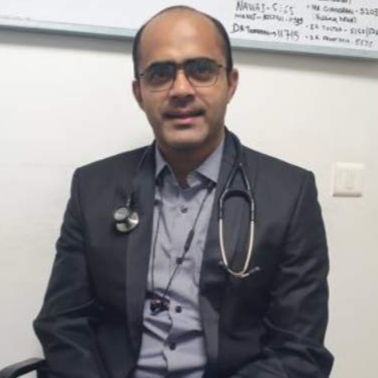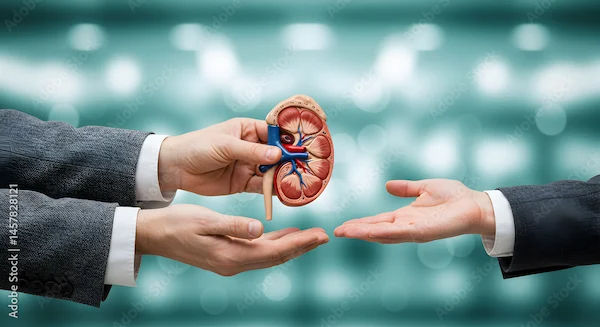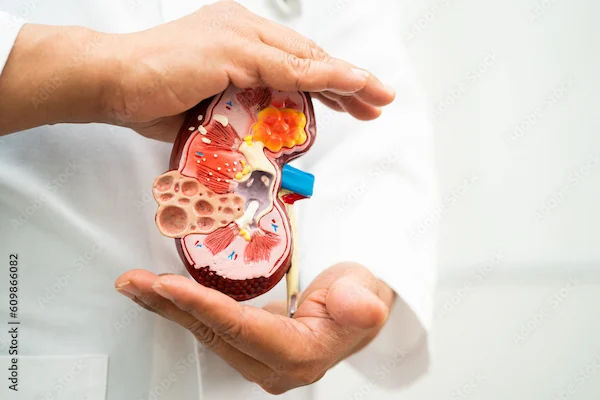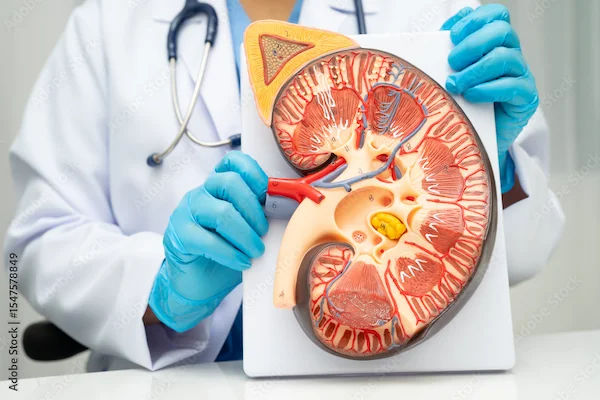Chronic Kidney Disease Overview and Management
Chronic Kidney Disease (CKD) is a progressive condition that can lead to kidney failure if unmanaged. Learn about its causes, symptoms, stages, diagnosis, and effective ways to manage and slow its progression.

Written by Dr. Rohinipriyanka Pondugula
Reviewed by Dr. D Bhanu Prakash MBBS, AFIH, Advanced certificate in critical care medicine, Fellowship in critical care medicine
Last updated on 25th Aug, 2025

Chronic Kidney Disease (CKD) is a long-term condition where the kidneys gradually lose their ability to filter waste and excess fluids from the blood. If left untreated, CKD can progress to kidney failure, requiring dialysis or a kidney transplant. However, with early detection and proper management, many people with CKD can lead healthy lives.
This article will help you understand CKD, its causes, symptoms, and ways to manage it effectively.
What is Chronic Kidney Disease (CKD)?
Your kidneys play a vital role in maintaining overall health by:
- Filtering waste and extra fluids from the blood
- Balancing minerals (like sodium, potassium, and phosphorus)
- Producing hormones that regulate blood pressure and red blood cell production
When CKD develops, the kidneys become damaged over time and cannot perform these functions efficiently. The disease progresses in stages, from mild (Stage 1) to severe (Stage 5, also called kidney failure).
Common Causes of CKD
Several factors can contribute to kidney damage, including:
- Diabetes (high blood sugar damages kidney filters)
- High blood pressure (puts strain on kidney blood vessels)
- Heart disease (affects kidney blood flow)
- Glomerulonephritis (inflammation of kidney filters)
- Polycystic kidney disease (a genetic condition causing cysts in kidneys)
- Long-term use of certain medications (like NSAIDs—ibuprofen, naproxen)
- Recurrent kidney infections or blockages (kidney stones, enlarged prostate)
Early detection and controlling these conditions can slow CKD progression.
Symptoms of CKD
In the early stages, CKD may not cause noticeable symptoms. However, as kidney function declines, you may experience:
- Fatigue and weakness (due to anemia)
- Swelling in legs, ankles, or feet (fluid retention)
- Frequent urination, especially at night
- Foamy or bloody urine
- High blood pressure
- Loss of appetite and nausea
- Muscle cramps or itching (due to mineral imbalances)
- Shortness of breath (fluid buildup in lungs)
If you notice these symptoms, consult a doctor for evaluation.
How is CKD Diagnosed?
Doctors use simple tests to check kidney function:
1. Blood Test (Serum Creatinine & eGFR) – Measures how well kidneys filter waste.
2. Urine Test (Albumin-to-Creatinine Ratio) – Checks for protein leakage (a sign of kidney damage).
3. Imaging Tests (Ultrasound/CT Scan) – Looks for structural abnormalities.
4. Kidney Biopsy (in rare cases) – Examines kidney tissue for damage.
If you have diabetes, high blood pressure, or a family history of kidney disease, regular screenings are crucial.
Get Your Symptoms Checked now.
Managing Chronic Kidney Disease
While CKD cannot be reversed, lifestyle changes and medical care can slow its progression and improve quality of life.
Consult a Top Nephrologist
1. Control Underlying Conditions
- Manage Diabetes: Keep blood sugar levels in check.
- Control Blood Pressure: Aim for below 130/80 mmHg.
- Treat Heart Disease: Follow your doctor’s advice on medications.
2. Follow a Kidney-Friendly Diet
- Limit Sodium (Salt): Avoid processed foods, pickles, and canned soups.
- Reduce Protein Intake: Excess protein strains kidneys.
- Monitor Potassium & Phosphorus: High levels can be harmful.
- Stay Hydrated (but not excessively): Follow your doctor’s fluid recommendations.
3. Avoid Harmful Medications
- Over-the-counter painkillers (NSAIDs like ibuprofen) can worsen kidney damage. Always consult your doctor before taking any new medication.
4. Exercise & Maintain a Healthy Weight
- Regular physical activity helps control blood pressure and diabetes.
5. Quit Smoking & Limit Alcohol
- Smoking reduces blood flow to kidneys, worsening damage.
6. Regular Doctor Visits & Monitoring
- Routine blood and urine tests help track kidney function.
When to Seek Immediate Help?
If you experience:
- Sudden swelling in legs or face
- Severe fatigue or confusion
- Difficulty breathing
- Chest pain
Seek medical help immediately, as these could indicate advanced kidney disease or complications.
Can CKD Be Prevented?
While some risk factors (like genetics) can’t be changed, you can reduce your risk by:
- Managing diabetes and high blood pressure
- Eating a balanced, low-salt diet
- Avoiding excessive painkiller use
- Staying active and maintaining a healthy weight
When is Dialysis or Transplant Needed?
If CKD reaches Stage 5 (kidney failure), treatment options include:
- Dialysis (a machine filters blood artificially)
- Kidney Transplant (a healthy kidney from a donor)
Early management helps delay or avoid these treatments.
Take Charge of Your Kidney Health
If you have risk factors for CKD or notice symptoms, consult a doctor for early detection. Apollo 24|7 offers expert nephrology consultations and kidney function tests; book an appointment today to stay proactive about your kidney health. Early action can make a big difference in managing CKD effectively.
Consult a Top Nephrologist
Consult a Top Nephrologist

Dr Ajay Kumar Sharma
Transplant Specialist Surgeon
39 Years • MBBS, MS, DNB, FRCS (Glas), FRCS (Edin), FRCS (General Surgery), MSc Medical Education
Delhi
Apollo Hospitals Indraprastha, Delhi

Dr. Ch. Anil Kumar
Nephrologist
6 Years • MBBS., MD., DM
Kakinada
Apollo Hospitals Surya Rao Peta, Kakinada
(25+ Patients)

Dr Vinay Kumar A V
Nephrologist
8 Years • MBBS, MD - General Medicine, DM - Nephrology
Bilaspur
Apollo Hospitals Seepat Road, Bilaspur

Dr. Brijesh Singh
Nephrologist
2 Years • MBBS,MD,DM
Guwahati
Apollo Excelcare Hospital, Guwahati

Dr. Sandeep Morkhandikar
Nephrologist
18 Years • MBBS, DNB, DM ( Nephrology)
Pune
Apollo Clinic, Viman Nagar, Pune
Consult a Top Nephrologist

Dr Ajay Kumar Sharma
Transplant Specialist Surgeon
39 Years • MBBS, MS, DNB, FRCS (Glas), FRCS (Edin), FRCS (General Surgery), MSc Medical Education
Delhi
Apollo Hospitals Indraprastha, Delhi

Dr. Ch. Anil Kumar
Nephrologist
6 Years • MBBS., MD., DM
Kakinada
Apollo Hospitals Surya Rao Peta, Kakinada
(25+ Patients)

Dr Vinay Kumar A V
Nephrologist
8 Years • MBBS, MD - General Medicine, DM - Nephrology
Bilaspur
Apollo Hospitals Seepat Road, Bilaspur

Dr. Brijesh Singh
Nephrologist
2 Years • MBBS,MD,DM
Guwahati
Apollo Excelcare Hospital, Guwahati

Dr. Sandeep Morkhandikar
Nephrologist
18 Years • MBBS, DNB, DM ( Nephrology)
Pune
Apollo Clinic, Viman Nagar, Pune

_11.webp)

_10.webp)

